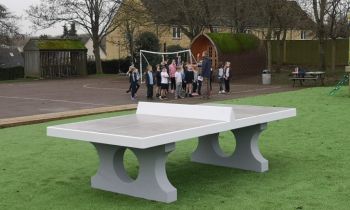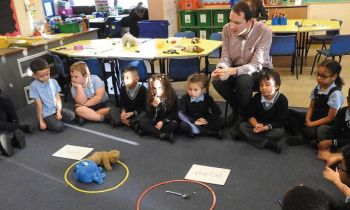I’ve been a teacher for 21 years. For 20 of those I’ve taught at Roebuck Academy, which it’s fair to say has seen some changes in that time. When I first started, it was a two-form entry infants school; it now occupies a pair of newly constructed buildings on the same site and has recently undergone conversion into a two-form entry academy.
The experiences I’ve had while remaining in ostensibly the same setting have been considerable, but I’ve found working under different headteachers, SLTs and governing bodies to be both rewarding and productive.
Late evenings
For the past 10 years I’ve also served as a governor at the school, and continue to enjoy being part of a supportive, friendly and challenging team. Despite initially telling my family that I’d be stepping down after a decade, I surprised myself by agreeing to renew my tenure – while at the same time questioning what effectiveness and impact I’d actually managed to have as a governor.
Is my reselection due to the school’s staff having faith in me as a governor, or is it a role that my colleagues are reluctant to take on? After all, the added workload, meetings and late evenings likely won’t appeal to the dedicated and hard-working team I’m proud to be part of. I prepare for meetings by reading minutes from past meetings and the most recent headteacher’s report, before drafting paragraphs with additional information and challenge to show what developments there have been in the areas I lead.
I do, however, find it difficult to question data when it’s my own class data that I’m presenting. It’s hard, after all, to challenge the school data when you have personal ownership of it – something that becomes especially acute in my dual role as the school’s SEND coordinator.
Being keen to contribute to the governing body in a way that served the school’s best interests, I asked the headteacher if I could set aside a day for having the governors review the school’s SEND provision and was given the go-ahead.
Real impact
We began by splitting up into three groups. Group 1 examined whether our website was consistent with our statutory SEND obligations and in line with Ofsted expectations by referring to the SEND Code of Practice and comparing our website to those of other schools. Group 2 focused on pupil voice, looking at whether pupils knew who to turn to for help and how often that help was available.
Group 3 meanwhile looked at parent voice, checking whether useful and essential information was reliably communicated to parents, how often meetings were had between parents and teaching staff and whether the school was doing enough to direct parents to external agencies and forms of support when they needed it.
The governors then proceeded to undertake learning walks focused on their respective areas, comparing their observations against an inclusive learning checklist. They examined what the children were able to do, how they went about using the resources available and the ways in which the school’s environment helped them or created barriers to learning.
The governors finally reconvened in the afternoon, shared their findings and set out a series of SEND-focused actions for the school to take in line with the school development plan. The chief aim throughout was for the monitoring we had done during the day to have a real impact, and to result in follow-up actions that highlighted those issues that needed redressing.
Clare Elson is a teacher at Roebuck Academy.










